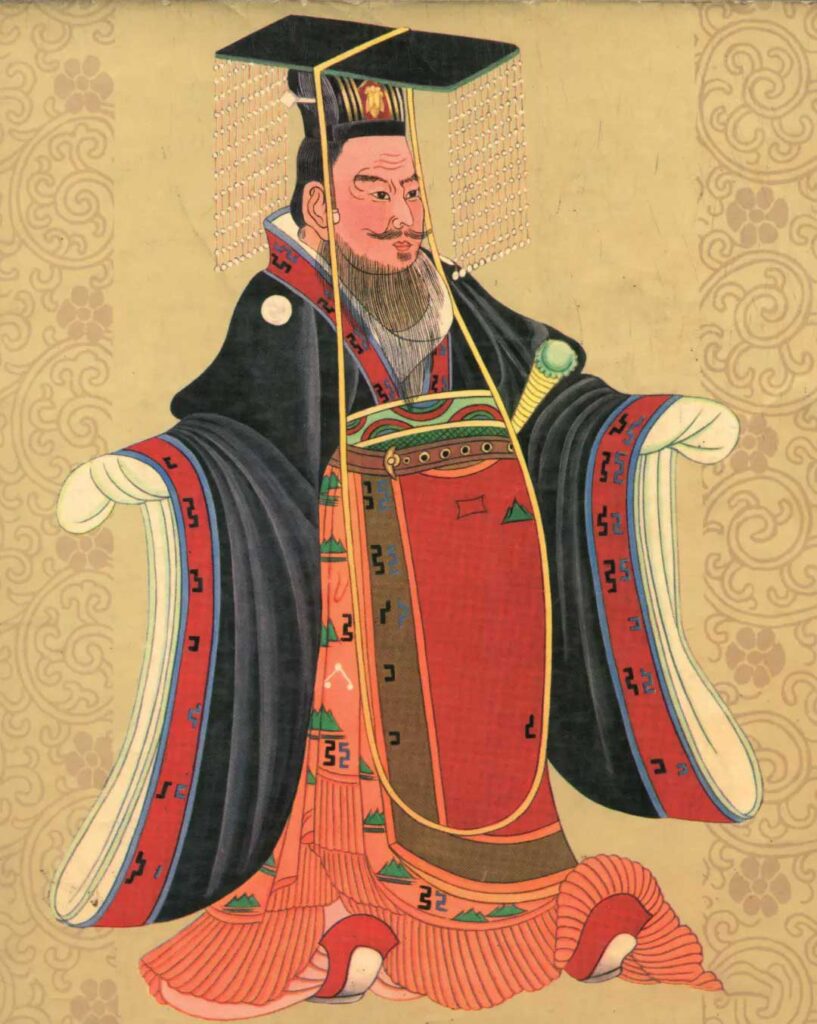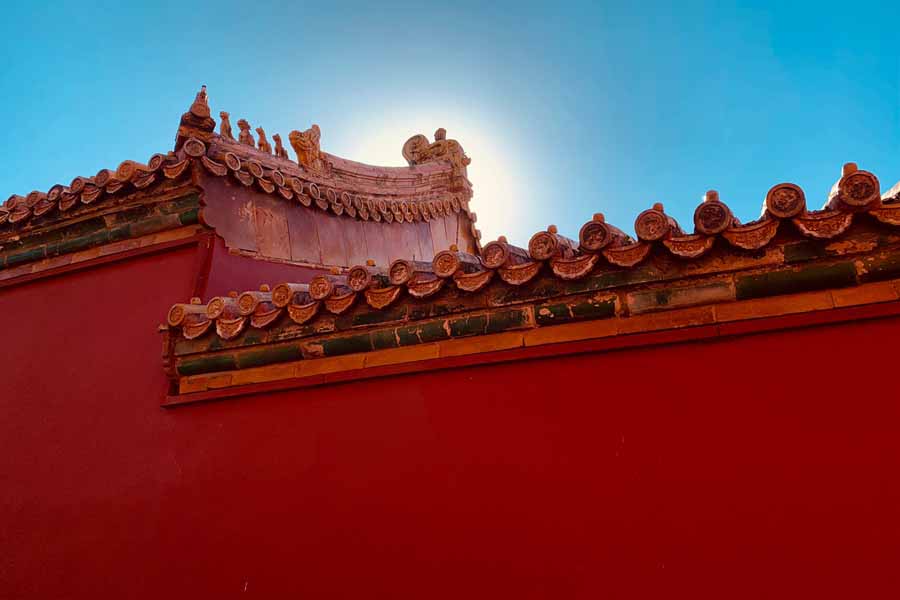Emperor Wu of Han, also known as Han Wu Di was the seventh emperor of the Han Dynasty and is considered one of the greatest emperors in Chinese history. He ascended the throne when he was only 16 years old and reigned for 54 years.
Emperor Wu’s personal name was Liu Che and he was one of the 14 sons of Emperor Jing. Liu Che was an exceptionally bright child. When he was only three, his father asked him whether he would like to become an emperor in the future. The child answered, “It’s up to Heaven to decide, not me. But I’m willing to accompany you forever.” The emperor was very impressed by his son’s reply.

One year later, his aunt Liu Piao asked the child if he wanted any of her 100maids to be his future wife. The child said no. Then she asked him if he would like her daughter Ah Jiao as his wife. Liu Che answered: “Yes. Once I marry her, I’ll build a golden house and hide her inside it.”
The aunt was very happy with the child’s answer, which later became a popular idiom, “putting Jiao in a golden house,” meaning to live with a young wife in a splendid abode. The idiom is still in use today.
Then the aunt, who was very influential in helping the emperor appoint a crown prince, eventually convinced her brother to name Liu Che his heir when the child was only seven.
After his father passed away, Liu Che became the new ruler, Emperor Wu of Han. The new emperor was obviously an ambitious ruler. Based on the abundant wealth accumulated by his predecessors, he decided to build his country into one of the most powerful and prosperous nations in the world.
First, he followed the advice of famous Confucian scholar Dong Zhongshu to abandon all other schools of thought and adopt only Confucianism as the principal philosophy of the state. This had a powerful and long-lasting influence not only on the Chinese nation, but also on neighboring countries and regions in East and Southeast Asia.
Second, he established a totally centralized state to strengthen his autocratic rule. He relentlessly annihilated the political and economic influence of vassal states. Meanwhile, he adopted preferential policies to encourage local governments and people to build water conservation works and promote agriculture.
Then, he began to expand the country’s territory to reach today’s Korean Peninsula in the east and northern Vietnam in the south. He successfully expelled the frequently invading nomadic Hun tribes in the north. Most of the territory under Emperor Wu’s rule later become a permanent part of China.
Also, he sent special envoy Zhang Qian to the northwest to establish contacts and boost trade and cultural exchanges with countries in central Asia. After several years of unremitting exploration, the famous Silk Road began to extend all the way to Europe. The trade route later played an important role in the development of several great world civilizations.
In his later years, due to military setbacks in fighting the Hun tribes in the north and the early death of his crown prince, the emperor became downhearted and repentant.
In 89 BC, the emperor issued the Repenting Edict to apologize to the nation for his policy mistakes and for the huge burden he had imposed on the population by pursuing his ambitions for territorial expansion and for his debauched extravagance.
This marked a significant shift in the emperor’s policies. Following his one aide’s advice, he ceased territorial expansion, advocated thrift and promoted agricultural production. However, before he could fully carry out his new policies, Emperor Wu passed away in 87 BC, leaving behind a still powerful dynasty, but an ambivalent legacy.

